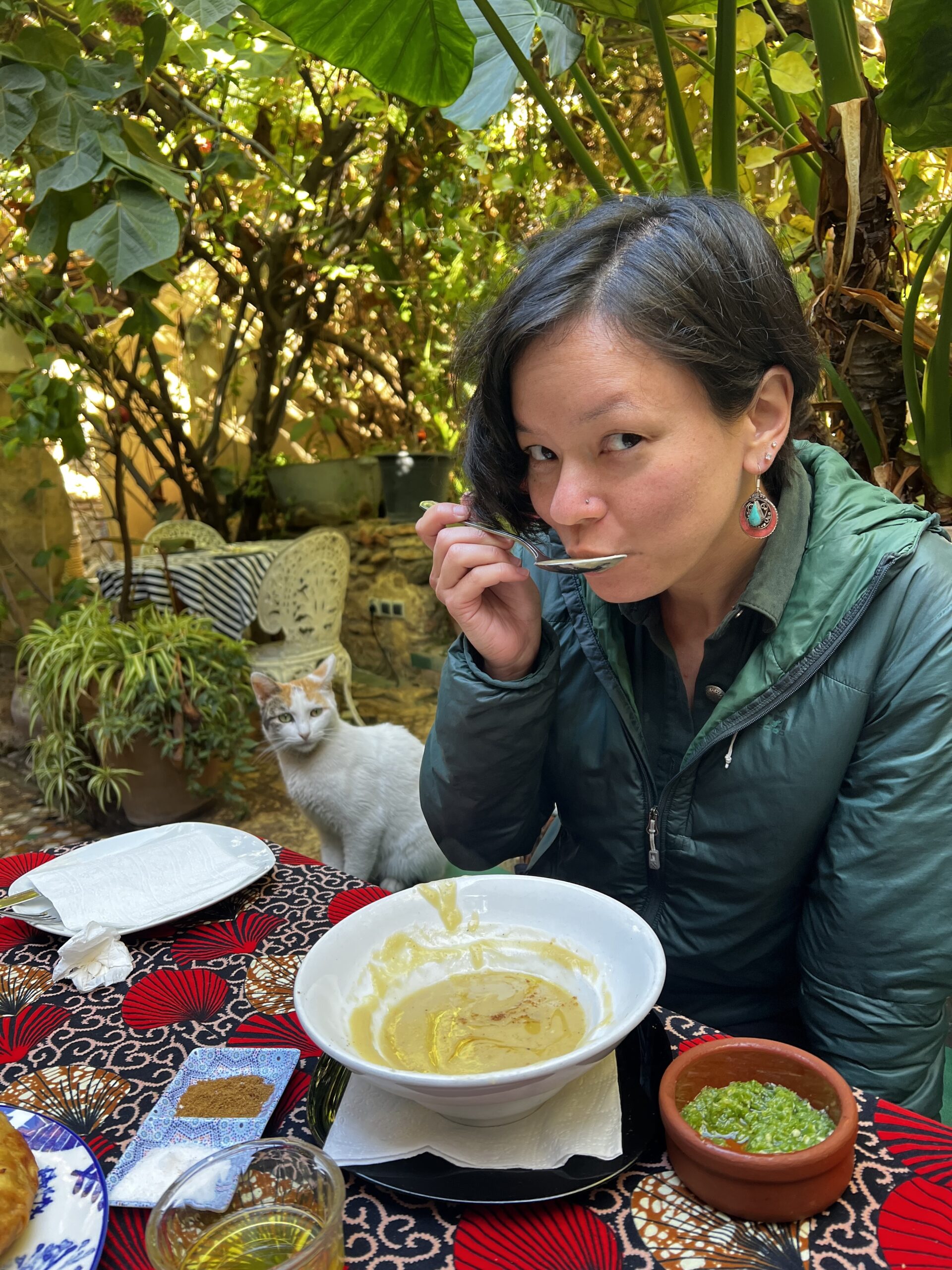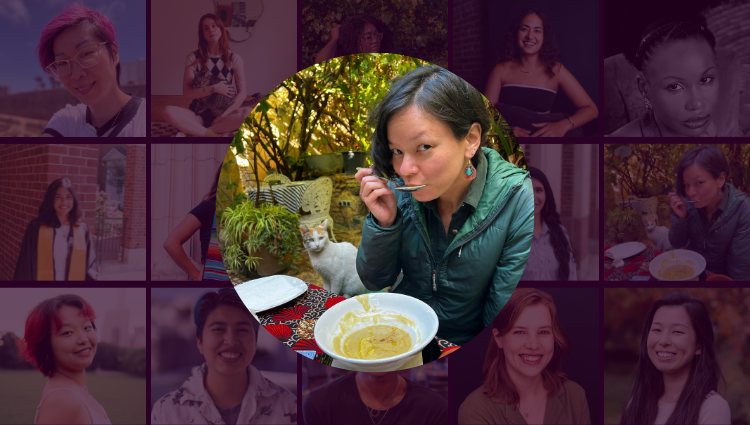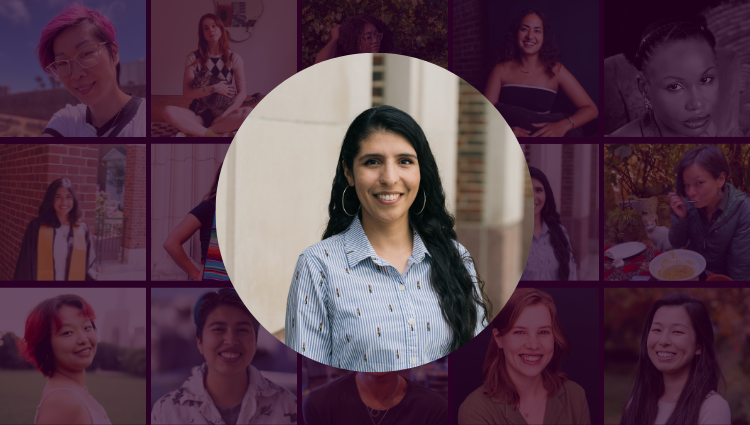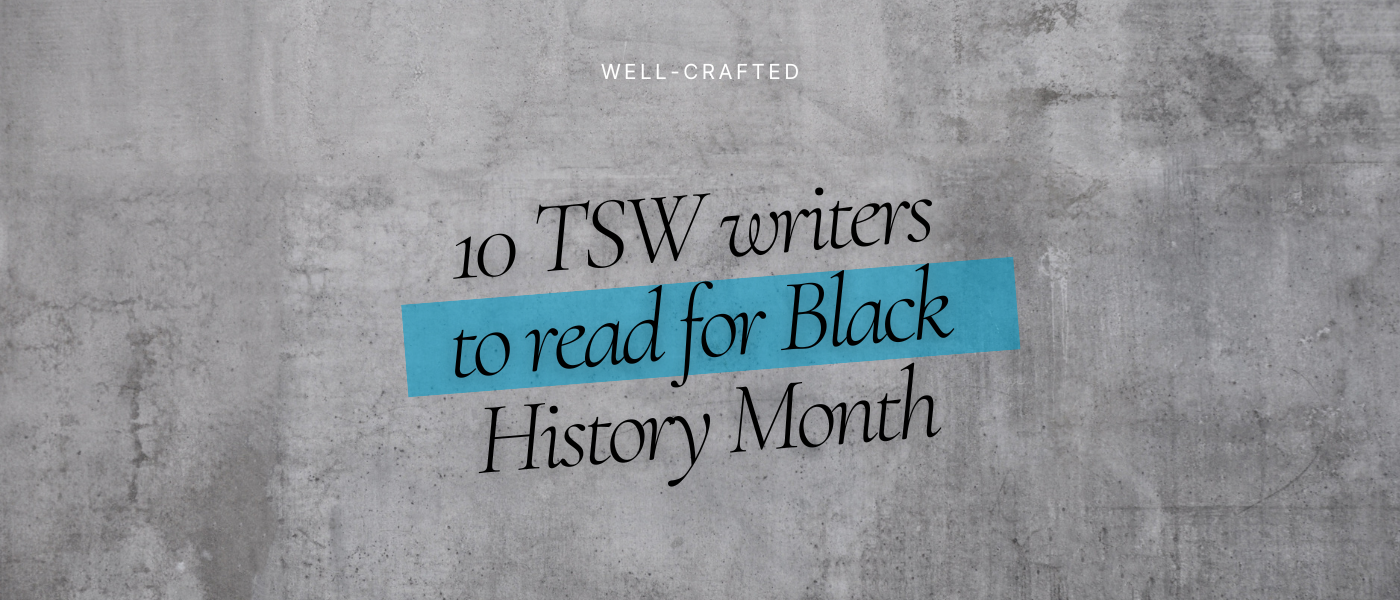Qing A. Saville was one of our 2024 Digital Residents. As a part of this program, we do Q&As with our residents to feature them, their work, and their words. See our Q&A with Qing below, and explore more Spotlights here.
TSW: Tell us about your work, writing, or project. What are you writing these days? How is your work changing, and how is it changing you?
Qing A. Saville: I write to heal.
I’m not entirely sure what this means except that I keep returning to Cheryl Strayed describing when she completed her memoir, Wild, as “no longer [having] two hearts beating in my chest [because] I’d pulled one out with my own bare hands.”
I have had two hearts beating in my chest for so long that I’d like to pull one out now. I don’t know exactly what I’ll find but I know it’s there. I’m ready to give it its own body. I need to.
I think I’m ready to tipoe back into a project I began six years ago in grad school, though really 12 years ago when I first began paying attention to this pull within me. It’s called Mu Qin: A Motherhood Lineage. The full title may shift over time, but Mu Qin is here to stay.
I know it will be about Taiwaneseness, intergenerational psychic wounds, grief, migration, healing, depth psychology, politicized somatics, IFS parts work, becoming my own loving parent, disentangling what stories and sensations belong to me versus belong to this second beating heart, disentangling control and abuse dynamics, and love.
I don’t know what form it will take, which stories will emerge, what the experiences will be like, or how long it will take.
It’s scary for me to sign up to do work so open-ended, unexplainable, and unknown — but I know it’s time to birth a new corporeal form to house this second beating heart.
TSW: What were you processing during our residency program? Did anything unlock for you? If so, what new entrance did you find for your work or for yourself as a writer in the world? And what caused that shift?
QS: Am I a writer even if what I create doesn’t seem, on the surface, like writing?
I write to heal – and healing is heavy stuff! I process my world through (hand)writing, but the work I make often doesn’t emerge as a written piece. I’m realizing that I write to heal and I make art to play. For me, writing is intense somatic work; art is about restoring, playing, and opening up.
I am still learning the balance between retreating from the world to write and re-entering the world to live.
Some emotional truths are best explored through image, movement, embodiment, experiences. At the end of the day, I’m not sure I am a writer – but I do write. I write, I create, I compose, I draw, I assemble, I contrast, I rearrange, I frame, I illuminate, I improvise, I design, I listen.
There are many ways to express one’s heart and to touch another’s. Narrative Shifts gave me permission to begin with my mess and to follow the “juicy psychic energy.” (Shoutout to a cohort-mate for this phrase!)
TSW: What’s a mantra or motto that you have in mind these days when you are writing or creating? Is there a writing routine or ritual that keeps you beginning?
QS: Allow my muse to lead. I’m able to feel more ease and have fun with the creative process when I humble myself to the fact that I’m not in charge, that the work or my muse is in charge. I generate and collect so many ideas, snippets, and fragments that it’s not until I play with the relationship between pieces that I start to see what form(s) or directions the work wants to take. When my job is to listen, it makes it much easier for me to show up for the work. It’s a real practice in trust, surrender, humility, and showing up. (Shoutout to my friend Christina Tran for making the presence of a muse come alive for me.)
Approach writing (creating) as a contemplative practice. I will not know where a path leads me when I first set out. The only way I can begin is to remind myself my job is not to know. My job is to show up and listen. (This is hard for my neurodivergent brain and body.)
PLAY. Just play. Give myself assignments. Put on green noise tracks. Soften my tissues. Move gently. Shake my booty. Follow the sparkles. (This is great for my neurodivergent brain and body.)
TSW: What motivates you to keep beginning, and/or, what is a story that gave you permission to tell yours? Feel free to tell us what’s on your bookshelf or TBR list these days.
QS: It seems I have to create to live. I am finally—finally!—paying attention to my psyche and the universe and my psyche on this one.
TSW: What is something that someone said — a fellow resident, a past mentor, perhaps something from one of the bonus sessions — that helped change the way you see your writing or work?
QS: The wonderful Melissa Febos visited our residency last fall. Her main advice for her graduate students? “Do your heart work. Stop writing the little things for publication … focus on the work.”
I’ve also received two reflective gifts from friends when I was despairing about not feeling like a “real” writer or artist because I wasn’t putting all this work out into the world.
The first gift came when a friend called me an “emotional alchemist.” That phrase so beautifully captured what I aim to do in and through my work, even if I shapeshift through different forms and methods. Not all mediums fit the truth that needs expressing. Which medium(s) and materials best express and alchemize the truth you need to share?
The second gift came when, after an afternoon dreaming together (and despairing on my part), a friend wrote this for me: “For those wanting to move through blockages and stuckness, Qing helps them unearth what’s invisible/unspoken/unheard through somatic and creative practices that, through the body, open new possibilities and transform their lives.”
Her words really captured the rhythm of my work and what I hope my work helps give birth to. The fact that she wrote this, and that it reflects my work so well, helps me see that maybe my calling isn’t so inexplicable after all!




